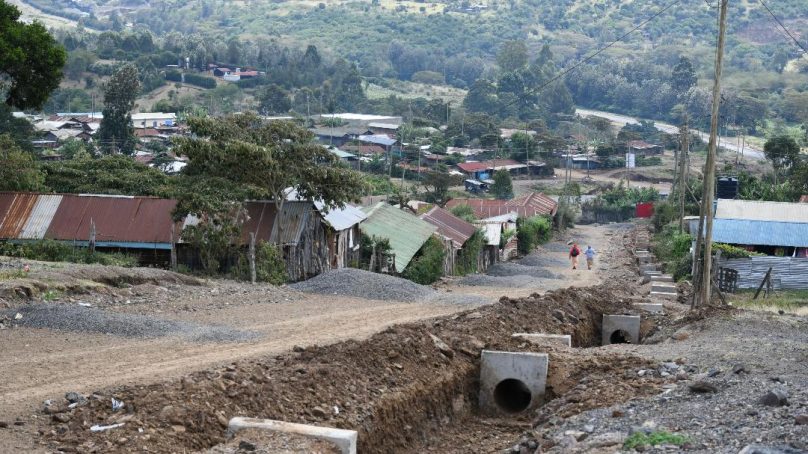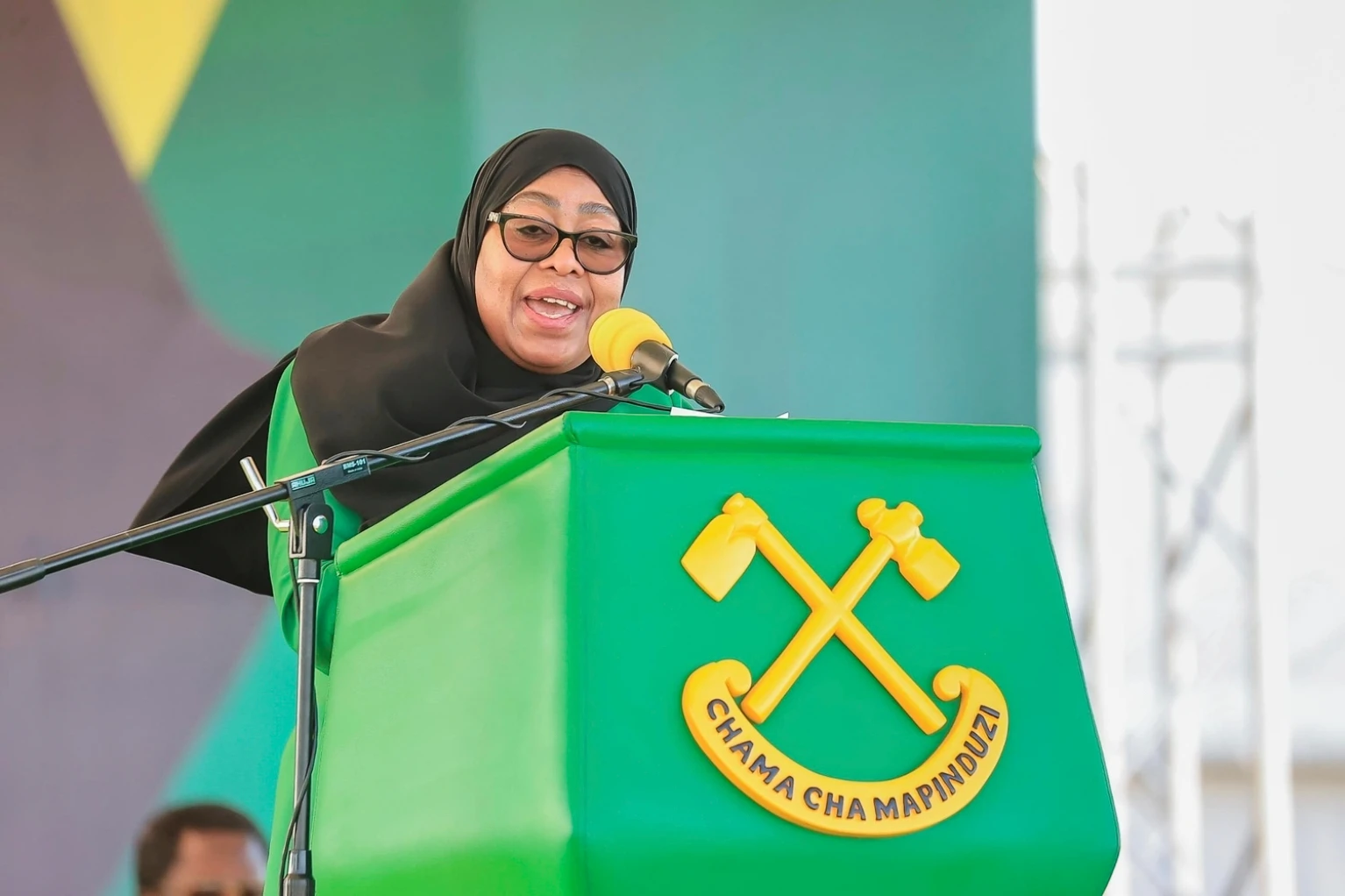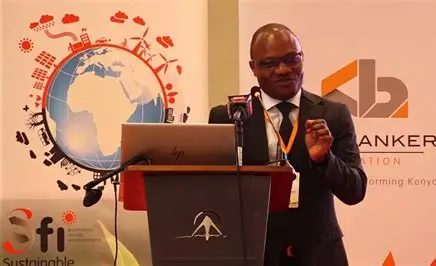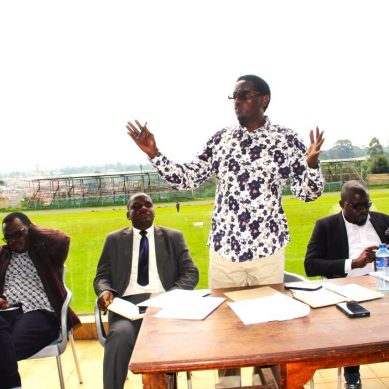
Ruth Wachira comfortably turns on a water tap outside her modest wooden house in Chorong’i, a colonial village in Nyeri town.
For someone who had depended on the goodwill of her neighbours to access the precious commodity, it would have been difficult to convince the grandmother of four that she would one day enjoy the simple joys of having piped water in her compound.
“Before my home got connected to piped water, I used to depend on my neighbours,” she says.
Ruth is one of the 26 direct beneficiaries of Kenya Informal Settlements Improvement Programme (KISIP) in Chrong’i village. The programme which is in its second phase is hinged on promoting dignified living for inhabitants of informal settlements by addressing systemic challenges like the lack of secure land tenure, inadequate infrastructure, and limited socio-economic opportunities.
Besides access to amenities such as piped water, its beneficiaries like Ruth are enjoying murram roads network linking the villages to the main road. But the biggest upgrade yet is her promotion from being a squatter to a holder of the title deed for the 40×80 parcel of land she has been residing in for close to 20 years something she says.
To empower herself, Ruth recently acquired a dairy goat which provides milk for her family complementing the farm produce she harvests from the kitchen garden around her house.
“Life as a squatter comes with numerous insecurities and challenges. For one, you cannot make any sound investment or development decision due to lack of security of land tenure but now that title deed has given me some sense of belonging. I can walk into a bank or microfinance and take up a loan and embark on a development project,” she says.
Ruth is not alone. A few kilometres away in Kiamwathi – another colonial village in Nyeri Town – Stephen Maathai a beneficiary of KISIP narrates how the upgrade programme has changed the outlook of the village and its inhabitants.
For Maathai, the expansion and murraming of roads has made his village more passable especially during the rainy season. Additionally, he notes that since the installation of the high-mast security light locally referred to as ‘mulika mwizi’ (Kiswahili colloquial for ‘spot a thief’ or ‘scare a thief’) the crime rate in the village has significantly reduced.
“The mulika mwizi has really improved our security especially at night. Those who work in town do not have to worry about their security at night when they return home from work because the place is well lit. Also, we no longer hear of cases of break-ins or theft of poultry which were very common in this area before,” says Maathai.
Maathai says is not just security that has improved but they are also enjoying some economic benefits from the improved lighting. He says that the improved lighting has increased the operating hours for business community in the village with more business opening up in the village.
“The grocery shops now operate till late at night and we have new ones coming up thanks to the security lights,” he says.
Further away in Mweiga where the county government has been constructing a series of storm drainage systems to complement the road network the residents cannot hide their joy. The area is prone to flooding due to the gradient of the terrain and the residents say that with drainage trenches they are no longer worried about flooding during the rainy season.
“First, gaining access to this area during emergencies was an uphill task but through the KISIP project, our road network has improved significantly. They have also constructed drainage trenches so we are no longer worried about the rain water flooding our houses like it previously used to happen whenever there was a heavy downpour,” said Lucy Muthoni who resides in Mweiga.
County Project Coordinator Beatrice Koech says that in Nyeri County the upgrade programme will dignify the lives of more than 50,000 inhabitants of five colonial villages. She is, however, quick to note that once complete the impact will be felt by communities neighbouring the five villages.
“For instance, the roads that we are constructing will serve the people inside and outside these settlements so the benefits go beyond the five colonial villages,” she says.
Koech also notes that the program is building on the achievements of the first phase, which mostly addressed the systemic challenges in informal settlements such as lack of secure land tenure. She says that the focus of the second phase will be to improve the livelihoods of the beneficiaries by addressing issues such as inadequate infrastructure and eliminating factors that limit them from accessing socio-economic opportunities.
“We had KISIP I where we did tenure regularisation and this is where the settlements were issued with title deeds. Before KISIP I came, the people had been staying without proper ownership documents. And so the designers of the project felt that having the ownership document without any supportive project may not help and that is how KISIP II came in to help the beneficiaries improve their lives,” she says.
According to Nyeri County Executive Committee Member in charge of Lands and Physical Planning Ndirangu Gachunia, the project is being undertaken at a cost of Ksh500 million. Ndirangu placed the completion rate of the works at between 48-50 per cent in all the five sites.
“Under KISIP II we are working in five colonial villages of Kiamwathi, Chorong’i Kiawara in Nyeri town, and Mweiga in Kieni and Ihwagi in Mathira East. Most of the small works like the installation of high-mast security lights, the work has already been finalised. What is remaining is the heavy works that include excavation work, tarmacking of roads to improve access to the settlements,” said Gachunia during a site visit to one of the projects.
Beyond the physical infrastructure Gachunia says the benefiting villages will also get a slum prevention strategy, which will address the underlying factors that make people move into informal settlements.
Overall the program is also taking shape in 40 other counties with funding of Ksh21 billion from the World Bank’s Internal Development Association (IDA), Agence Française de Development (AFD), the European Union (EU) and the national government.
According to the KISIP II website, the program is expected to have improved over 81 informal settlements in the country by its lapse in 2028.
- A Tell Media / KNA report / By Wangari Mwangi








